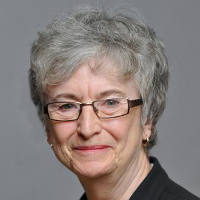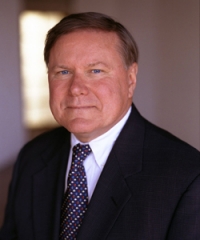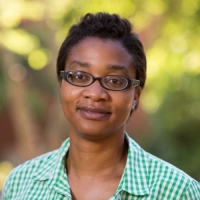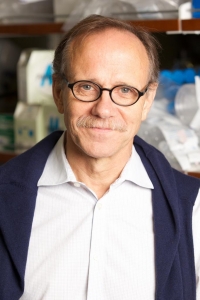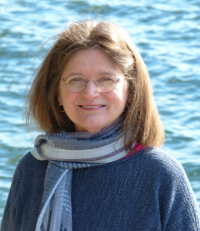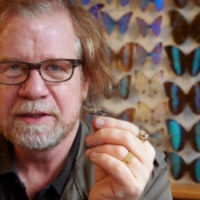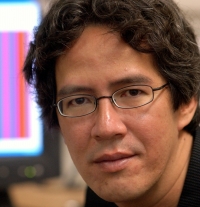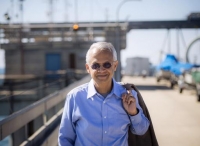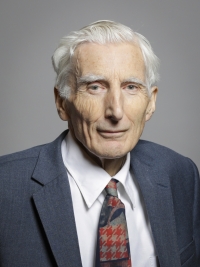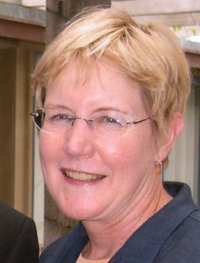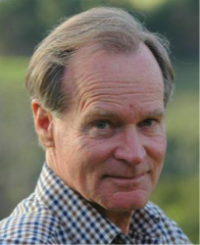Human Origins and Humanity's Future: Past, Present and Future of the Anthropocene
Biographical Sketches: Co-Chairs
University College London
Leslie Aiello is Professor Emerita, University College London and President Emerita of the Wenner-Gren Foundation for Anthropological Research. Her academic interests focus on the evolution of human adaptation as well as on the broader issues of evolutionary theory, life history, energetics, and the evolution of the brain and cognition. She has degrees from the University of California Los Angeles and from the University of London. She spent the majority of her academic career at University College London (1976-2005) and returned to the US to head the Wenner-Gren Foundation for Anthropological Research (2005-2017). She was president of The American Association of Biological Anthropologists (AABA) from 2018-2019 and currently serves on the Board of the Smithsonian’s National Museum of Natural History. Throughout her career she has been active with the media in the public dissemination of science and has served as consultant and advisor to a variety of international anthropological institutions and initiatives.
Scripps Institution of Oceanography and University of Cambridge
Charles F. Kennel is distinguished professor, vice-chancellor, and director emeritus at the Scripps Institution of Oceanography at UC San Diego. He was educated in astronomy and astrophysics at Harvard and Princeton. He joined UCLA’s Department of Physics and its Institute for Geophysics and Planetary Physics where he pursued research and teaching in theoretical space plasma physics and astrophysics, eventually chairing the Physics Department. From 1994 to 1996, Kennel was Associate Administrator at NASA and leader of its Earth science satellite program. Kennel’s experiences at NASA influenced him to change into Earth science, and he became the ninth Director of Scripps Institution of Oceanography, serving from 1998 to 2006. During winter terms 2007, 2010, 2012, 2014, and 2015-2020, he was a Distinguished Visiting Scholar at Christ’s College, Cambridge.
Biographical Sketches: Speakers
Yale University
Vanessa Ezenwa is a Professor in the Department of Ecology and Evolutionary Biology at Yale University. Her research focuses on the ecology and evolution of infectious diseases in wild animal populations. She has a long-standing interest in understanding how host social behavior and interactions between co-occurring pathogens influence the consequences of infectious diseases at multiple scales of biological organization. She received her BA in Biology from Rice University and PhD in Ecology and Evolutionary Biology from Princeton University. She was a National Research Council Fellow at the USGS before joining the faculty at the University of Montana in 2005. From 2010 to 2021, she held joint appointments in Odum School of Ecology and Department of Infectious Diseases at the University of Georgia, where she was appointed a Georgia Athletic Association Professorship. Vanessa currently serves as a senior editor at Ecology Letters and second president-elect of the Animal Behavior Society.
Salk Institute for Biological Studies
Fred H. Gage is a Professor in the Laboratory of Genetics and the past President (2018-2023) of the Salk Institute. He is an Adjunct Professor at UC San Diego, and emeritus Co-Director of CARTA. Dr. Gage concentrates on the adult central nervous system and unexpected plasticity and adaptability to environmental stimulation that remains throughout the life of all mammals. His work may lead to methods of replacing or enhancing brain and spinal cord tissues lost or damaged due to Neurodegenerative disease or trauma. Gage's lab showed that, contrary to accepted dogma, human beings are capable of growing new nerve cells throughout life. Small populations of immature nerve cells are found in the adult mammalian brain, a process called Neurogenesis. He is working to understand how these cells can be induced to become mature functioning nerve cells in the adult brain and spinal cord. They showed that environmental enrichment and physical exercise can enhance the growth of new brain cells and they are studying the underlying cellular and molecular mechanisms that may be harnessed to repair the aged and damaged brain and spinal cord. Gage is a member of the National Academy of Science and the Institute of Medicine.
Smithsonian Institution, National Museum of Natural History
Nancy Knowlton is a coral reef biologist who spent much of her career at the Smithsonian, in Panama at the Smithsonian Tropical Research Institute and at the National Museum of Natural History in Washington, DC, prior to moving to Brooksville in Maine. She was also a professor at Yale and the Scripps Institution of Oceanography, University of California San Diego, where she founded and led the Center for Marine Biodiversity and Conservation. She is a global board member of The Nature Conservancy, was the Editor-in-Chief of the Smithsonian’s Ocean Portal, and helped lead the Census of Marine Life coral reef program. In 2013 was elected to the American Academy of Arts and Sciences and to the U.S. National Academy of Sciences. She is a winner of the Peter Benchley Prize, the Heinz Award, the Women’s Aquatic Network 2018 Woman of the Year award, the National Marine Sanctuary Foundation Lifetime Achievement Award, and the International Coral Reef Society’s Darwin Medal. She is the author of Citizens of the Sea and helped launch #OceanOptimism on Twitter, where you can follow her at @SeaCitizens.
Smithsonian Institution, National Museum of Natural History
Mark Moffett is a Research Associate at the Smithsonian whose reseach has focused on the structure of rainforest canopies, social complexity in ants, and the evolution of societies generally. He has spent the last several years studying the organization of societies in humans and other animals while on sabbatical at the National Evolutionary Synthesis Center in Durham, NC. As a Visiting Scholar at the Department of Human Evolutionary Biology at Harvard, Mark worked on a synthesis of how societies stay together and fall apart, across species and in humans right up to the present day. Moffett completed his doctorate at Harvard on the evolution and social organization of an ant species with army ant behaviors under the ecologist Edward O. Wilson. Before that he held a research position at the Museum of Vertebrate Zoology at University of California, Berkeley and spent two years as an assistant curator in charge of the ant collection at Harvard’s Museum of Comparative Zoology. Moffett is a modern-day explorer with more than a little luck on his side, having accidentally sat on the world’s deadliest snake, battled drug lords with dart guns, and scrambled up a tree to escape bull elephants. His most recent book, The Human Swarm: How Our Societies Arise, Thrive and Fall (Basic Books, 2019), ties biology with modern psychology and anthropology with surprising insights. The Human Swarm has been called “a magisterial work of monumental importance” by Scientific American columnist Michael Shermer, while Kevin Kelly, founder of Wired magazine, tells us to “read this manifesto if you like to have your mind changed.”
New York University
Dr. Michael Purugganan received his B.S. in Chemistry from the University of the Philippines (1985), an M.A. from Columbia University (1986) and a Ph.D. in Botany with a Global Policy minor at the University of Georgia (1993). After obtaining his Ph.D., he did postdoctoral research as an Alfred P. Sloan Molecular Evolution Fellow at the University of California in San Diego, studying the evolution of development (1993-1995). Dr. Purugganan is a leader in the field of evolutionary and ecological genomics and his work focuses on identifying the molecular basis for evolutionary adaptations that occur in nature. Prior to joining the NYU faculty in 2006, he was the William Neal Reynolds Distinguished Professor of Genetics at North Carolina State University, where he also won the Outstanding Faculty Research Award and the Sigma Xi Research Prize. He is the recipient of an Alfred P. Sloan Foundation Young Investigator Award, a Guggenheim Fellowship, is a Kavli Fellow, and in 2005 was elected a Fellow of the American Association for the Advancement of Science. Dr. Purugganan has served on the editorial boards of the journals Molecular Biology and Evolution, Molecular Ecology, Trends in Plant Science and the Annual Review of Ecology, Evolution and Systematics.
Scripps Institution of Oceanography, UC San Diego
Veerabhadran Ramanathan is a distinguished professor emeritus of Atmospheric and Climate Sciences at the Scripps Institution of Oceanography, UC San Diego. In 1975, he discovered the super greenhouse effect of Chlorofluorocarbons (also known as 'freons' used as refrigerants). Along with R. Madden, he predicted in 1980 that global warming would be detected by 2000. In 1989, he led a NASA study that used satellite instruments to show that clouds had a large global cooling effect. He led an international field experiment with Paul Crutzen in the 1990s that discovered the widespread Atmospheric Brown Clouds (ABCs) over S. Asia, which have devastating health and climate impacts. He developed light-weight remotely piloted aircraft (RPA) to track pollution plumes from S. Asia, E. Asia, and N. America. His most recent discovery is that mitigation of short-lived climate pollutants (black carbon, methane, ozone, and HFCs) will slow down global warming significantly during this century. The United Nations and 30 countries, including the United States, have now adopted this proposal and a new coalition, called the Climate and Clean Air Coalition, is implementing mitigation actions for short-lived climate pollutants. He advised then-Governor Jerry Brown to pass a bill to drastically reduce emissions of short-lived climate pollutants in California. He founded Project Surya, to mitigate black carbon and other climate-warming emissions from solid biomass cooking in S. Asia and Kenya, and is documenting their effects on public health and the environment. At the University of California (UC), he led the most ambitious effort of his career: Bending the Curve: Climate Change Solutions. The Bending the Curve report, written with fifty leading academics at UC, outlines ten interdisciplinary solutions to the climate problem. He followed this with an undergraduate educational protocol, named Bending the Curve: Climate Solutions, to educate a million climate warriors and climate stewards, which is being taught at many campuses in the US and abroad. He was honored in 2021 with the Blue Planet Prize and in 2018 became the Tang laureate for Sustainability Science. In 2014, Foreign Policy Journal included Ramanathan among the top 100 Thought Leaders of the world. In 2013, he was awarded the top environmental prize from the United Nations, the Champion of Earth for Science and Innovation [www.unep.org/champions]. He has won numerous other prestigious awards, including the Tyler Prize, which is the top environment prize given in the US; the Volvo Prize; the Rossby Prize, and the Zayed Prize. He has been elected to the US National Academy of Sciences, American Philosophical Society, the Pontifical Academy by Pope John Paul II, The World Academy of Sciences, and the Indian National Science Academy. In 2011, he was elected to the Royal Swedish Academy of Sciences, which nominates and awards the Nobel Prizes in the science categories. He is now serving in Pope Francis’ Council for the Pontifical Academy of Sciences. At the Vatican, he co-organized a 2014 historic Vatican meeting on “Sustainable Humanity, Sustainable Nature” of social and natural scientists, philosophers, and policymakers. He briefed Pope Francis in person on the highlights of the meeting. He was the science advisor to Pope Francis' Holy See delegation to the Paris climate summit. He is now leading a Pontifical Academy initiative at the Vatican titled: "Resilience of People and Ecosystems under Climate Stress."
University of Cambridge
Martin Rees is a Fellow of Trinity College and Emeritus Professor of Cosmology and Astrophysics at the University of Cambridge. He holds the honorary title of Astronomer Royal and also Visiting Professor at Imperial College London and at Leicester University.
After studying at the University of Cambridge, he held post-doctoral positions in the UK and the USA, before becoming a professor at Sussex University. In 1973, he became a fellow of King's College and Plumian Professor of Astronomy and Experimental Philosophy at Cambridge (continuing in the latter post until 1991) and served for ten years as director of Cambridge's Institute of Astronomy. From 1992 to 2003 he was a Royal Society Research Professor, and then from 2004 to 2012, Master of Trinity College. In 2005 he was appointed to the House of Lords, and he was President of the Royal Society for the period 2005-10.
Martin is also one of the co-founders of The Cambridge Centre for the Study of Existential Risk (CSER).
Many scientists are concerned that developments in human technology may soon pose new, extinction-level risks to our species as a whole. Such dangers have been suggested from progress in Artificial Intelligence, from developments in biotechnology and artificial life, from nanotechnology, and from possible extreme effects of anthropogenic climate change. The seriousness of these risks is difficult to assess, but that in itself seems a cause for concern, given how much is at stake.
The Centre — a joint initiative between a philosopher, a scientist, and a software entrepreneur — was founded on the conviction that these issues require a great deal more scientific investigation than they presently receive. CSER is a multidisciplinary research centre dedicated to the study and mitigation of risks of this kind.
UC San Diego
Margaret Schoeninger is Distinguished Professor Emerita of Anthropology at UC San Diego, a Research Archaeologist in the Glenn Black Laboratory of Archaeology at Indiana University, and Emerita Co-Director of CARTA. She has done fieldwork in North America, Mexico, Pakistan, India, Kenya, and Tanzania as well as laboratory research on carbon, nitrogen, and oxygen stable isotope ratio analysis in biological tissues and food component analysis of traditional foods. Her major interest is in the evolution of human diet particularly as it informs our understanding of the appearance and evolution of the human lineage.
African Conservation Center, Nairobi, Kenya
David Western has directed the Amboseli Conservation Program since 1967, looking at the interactions of humans and wildlife. His work led to community-based conservation based on the coexistence of people and wildlife. Western directed Wildlife Conservation Society programs internationally, established Kenya’s Wildlife Planning Unit, chaired the African Elephant and Rhino Specialist Group, and was founding president of The International Ecotourism Society. He is former adjunct professor in Biology at the University of California and director of the Kenya Wildlife Service, and founded the African Conservation Centre in Nairobi. His books include Conservation for the Twenty-first Century; In the Dust of Kilimanjaro; Natural Connections: Perspectives in Community-based Conservation; Kenya’s Natural Capital: A Biodiversity Atlas, and We Alone. How Humans Have Conquered the Planet and Can Also Save it. He is the recipient of the World Ecology Award and the Life-time Achievement Award for Ecotourism.
